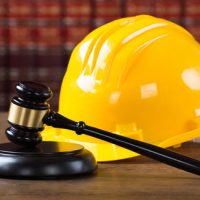Construction Work and Environmental Law Concerns

Individuals in the construction industry have many obligations that is external to the work they are performing. The construction industry must work diligently to minimize the externalities that they pass on to the general public. For example, before starting a project that requires underground digging, a contractor is mandated to perform an investigation to discover any underground piping that may be affected. Many of these activities exist to protect the public from outages as a result of the contractor’s misinformation. Another externality that construction workers have a responsibility to limit or avoid are environmental externalities.
Permitting Requirements
Given the possible negative effects of a large scale construction project, all states and localities, including Florida, require the contractor and other builders to obtain permits before starting work. Among other aims, the permit process seeks to draw out any negative effects a project may have on the public. In Florida, permits are issued by the city and requires the contractor to fill out a form detailing the type of work as well as a description of the work to be completed. After the form and fees are paid for the permit, there is a review process conducted by the city. Part of the review process entails a review of the possible environmental impacts the project will have. Therefore, a building permit application can be reviewed by many other agencies including the Water Management District, the Florida Health Department, and the Department of Environmental Protection.
Florida’s Coastal Protection Zones
Florida’s main environmental push–and it is also a highly regulated area–surrounds the protection of their coast. These laws also have a federal underpinning because they derive from the Coastal Management Act, which aims to preserve, protect, develop and restore the resources of the nation’s coastal zone. Given this aim, construction projects that are on or near the protected coastal zones will naturally receive more scrutiny. The scrutiny will occur at the permitting stage and will continue throughout the building process. The state officials will monitor the project’s effect on the environment, including any emissions of harmful chemicals and air pollutants.
Developing an Environmentally-Conscious Project
Contractors building in environmentally sensitive areas have a duty to perform their due diligence to preemptively discover concerns before obtaining a permit or before commencing a project. In some instances, contractors will be challenged by residents who are against a building project. Such outcomes can be avoided if the contractor and owners become informed about the impact their project will have on the public and the environment. Further, they are wise to inform themselves of the applicable regulations to ensure compliance with state and federal environmental laws.
Florida Construction Law Attorneys
Brendan Sweeney is a Fort Lauderdale construction lawyer with years of experience in obtaining Florida construction permits and licenses. If you have any questions and/or issues related to an environmental review of your construction project, contact us now for a consultation.
Resource:
coast.noaa.gov/czm/act/
https://www.sweeneylawpa.com/common-ethical-issues-in-construction-law/

